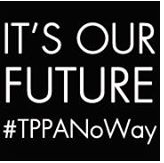The fifth in a series of expert peer reviewed papers on the implications of the Trans-Pacific Partnership Agreement (TPPA) for New Zealand was posted on the TPP Legal website today.
The paper examines the key economic issues that likely to be impacted by the TPPA – the predicted economic benefits of the TPPA for the New Zealand economy, the implications for agricultural trade, the impact on value chains for New Zealand exporters, the potential for regulatory ‘chill’ and the degree to which it fulfils the aim of being a ‘21st Century agreement’.
The paper was co-authored by Tim Hazledine, Professor of Economics at the University of Auckland Business; Rod Oram, business journalist and author; Geoff Bertram, Senior Associate at the Institute for Policy and Governance at Victoria University; and Barry Coates, researcher and former Executive Director of Oxfam New Zealand. The peer reviewer was John Quiggin, an Australian Laureate Fellow in Economics at the University of Queensland.
“It is striking how little the TPPA will deliver. Without the TPPA, our GDP will grow by 47% by 2030 at current growth rates. The TPPA would add only 0.9%”, says Barry Coates, who co-authored the section on modelling with Tim Hazledine.
“Even that small benefit is a gross exaggeration. The modelling makes unfounded assumptions, and the real benefits will be far smaller. If the full costs were included, it is doubtful that there would be any net economic benefit to the New Zealand economy.”
The main beneficiaries of tariff reductions from TPPA will be agricultural exporters, but modest tariff reductions of 1.3% on average by 2030 will be dwarfed by the ongoing volatility in commodity prices and exchange rates. The TPPA is not a gold standard agreement. “There remain extensive trade barriers to New Zealand agricultural exporters into the Japanese, Canadian and US food markets, and these are now locked in under the TPPA” explains Barry Coates who authored the section on agricultural trade.
“‘The TPPA has also failed to tackle agricultural subsidies that are a major trade distortion. The TPPA has undermined negotiations in the World Trade Organisation, the only viable forum for removing these trade distorting subsidies.”
“The investor-state dispute provisions, combined with restrictions on state-owned enterprises, will deter future New Zealand governments from a whole raft of regulatory and industrial policies that would be in the public interest, for fear of litigation by corporate interests whose profits are threatened” says Geoff Bertram, who authored the section on regulatory chill.
“The essence of the chilling process is the threat, not necessarily the actuality, of repercussions. The TPPA’s last-minute exclusion of big tobacco from the dispute process has only grazed the tip of a very large iceberg.”
“The TPPA will likely reinforce our position as a commodity producer and hinder our progress up the value chain where greater economic prosperity lies,” says Rod Oram, who authored the sections on value chains and the 21st Century agreement.
“Moreover, the TPPA reads very much like a charter for incumbent businesses, with US companies to the fore, that are attempting to hold back the tides of economic change the world needs.”
The series of expert peer-reviewed papers is supported by a grant from the Law Foundation. Previous papers have examined the Implications for Regulatory Sovereignty (Jane Kelsey) and Investment (Amokura Kawharu), te Tiriti (Carwyn Jones et al), and Environment (Simon Terry). Research on the implications of the TPPA for local government will be released shortly.
Notes: The research report is on the TPP Legal website at: https://tpplegal.files.






+1000
Why are we allowing this ridiculous deal to be ratified and giving up our democratic and legal rights fought for the last 200 years?
People need to wake up to the broader picture. There is a long term plan afoot engineered by the U.N. which has the effect of making both the TPPA and the climate change agreement both a potential threat to our sovereignty. And this is just the start. I would like to hear from Jane Kelsey and others on this. You ignore what is going on at your peril. There are books on the subject which clearly set out the pathway to achieving the end goal. What is happening in Europe is also part of the plan. The quicker the U.N. Is got rid of the better for the world order.
Notice how anyone speaking the TRUTH gets NEGATIVE ratings – the more negative ratings the more TRUTH you are speaking – its becoming a very good gauge as to what is real and what is manufactured…
If you look at the tactics being used to move human beings – forcing them to move into areas where there is a STRONG CULTURE as BENNET is planing in NZ and to deliberately destroy any strong “CULTURE” across the world, which is to destroy National identity and unity – that is the plan.
Look at the massive numbers of Africans moved into Europe and the massive numbers of Syrians also forced into Germany, Sweden, Norway, its all designed to destroy strong CULTURAL identities.
Its also interesting that BEFORE Gaddafi was killed and before Berlusconi was taken out on tax charges – there were NO african Movements from Libya into Italy – then as soon as they were taken out – the masses were permitted once again to move over in droves – young males who are now raping europe – and changing the CULTURE……this is how things were done in the days of CONQUEST – rape the women and change the cultures of the conquered land and people…..
That report makes grim reading.
I am for trade and trade agreements, especially with so many countries all at once, but I am dismayed and astonished that there seems to be so little to gain and so much to lose in this particular agreement.
I wish it was a purely ‘trade’ agreement with mutual and reasonable concessions and benefits to participating nations.
I feel that our ‘negotiators’ were a bunch of pretty useless and stupid farts not to have insisted in preserving our parliament’s sovereignty with regards to the sale of our lands to non resident foreigners and foreign entities.
How stupid, unintelligent, unwise, unpatriotic and clueless were our own dumbarse negotiators whereas the negotiators from Singapore, Australia and Malaysia were smart enough not to have lost the inalienable right of their respective nations and parliaments to make independent laws to protect their own lands from possible future foreign marauders, without compromising the ‘trade’ agreement or incurring punitive consequences!
Our crap negotiators have made the question ‘To be, or not to be, a very difficult question.
I keep saying elaborately manufactured goods is the only game in town
Cost of production and competing with other counties with lower costs is the problem.
Look. New Zealand can never compete with the big players in the global economy. That’s why we have to get into niche products that are elaborately manufactured like sleep apnea device that fisher & pickle medical dominate.
Stuff that the big players ignore because the products can’t support muti billion dollar factories
As far as I know, I think that Fisher & Paykel actually shifted their appliance manufacturing a few years ago to Thailand and Mexico to reduce costs. Didn’t they?
It’s not an appliance. It’s a medical device manufactured in NZ
TPP: Police undertake riot training
New Zealand Police have been undertaking mass riot training ahead of the signing of the Trans-Pacific Partnership in Auckland next month.
The trade agreement, that has sparked widespread controversy due to its closed-door negotiations, will be signed by international diplomats on February 4.
Dozens of large-scale protests have been held across the country as the five years of negotiations for the deal came to a close in the US last year.
The Herald understands that increased riot training – officially known as public order training – has been taking place ahead of the signing, as police prepare for more possible civil unrest.
Police Association vice-president Senior Sergeant Luke Shadbolt said that the TPP signing was the focus of annual public order training.
The Herald understands that the training goes over and above previous annual training, and involved more staff on a “mass” scale.
Police National Manager of Response and Operations, Chris Scahill, said police were responsible for all security aspects of the event.
He would not be drawn on any operational details for the event – including staff numbers.
“We can however say that we plan for every eventuality which can be anticipated, and the measures we take will be appropriate and thorough.”‘
Thoughts?
http://www.nzherald.co.nz/nz/news/article.cfm?c_id=1&objectid=11578174
Any chances of seeing a few National Party and ACT party MPs and members in the marches against the TPPA signing?
[…] The lie that this won’t impact Maori Treaty rights or our ability to pass environmental laws has been shown up by new papers released this week and the entire economic case for the deal has been blown wide open by research released today. […]
https://tpplegal.files.wordpress.com/2015/12/ep5-economics.pdf
The TPPa is nothing to do with trade,its about control.read Wake up New Zealand today or geopolitics.
The cabal is being dismantled and jail terms loom,so members are looking for safe havens to hide out.
The TPPA is a way for members of cabal to control the
laws of NZ while they buy up remote hideaways.maori land included,.
The cabal members are not getting their own way out in the world so will start again in NZ,make profits at the expence of NZs,already big money players are in NZ getting prepared for when the TPPA is signed and they can use it courtesy of John Key,who dosnt give a damn about what trade is in it.And we are the suckers allowing Key to get away with it.
[…] This forced trade deal creates a defacto upper chamber of our Parliament. It hands enormous power over to American corporations diminishing our ability to pass environmental laws, keep cheap medicines and ensure our Treaty obligations. The economics do not stack up either… […]
Comments are closed.